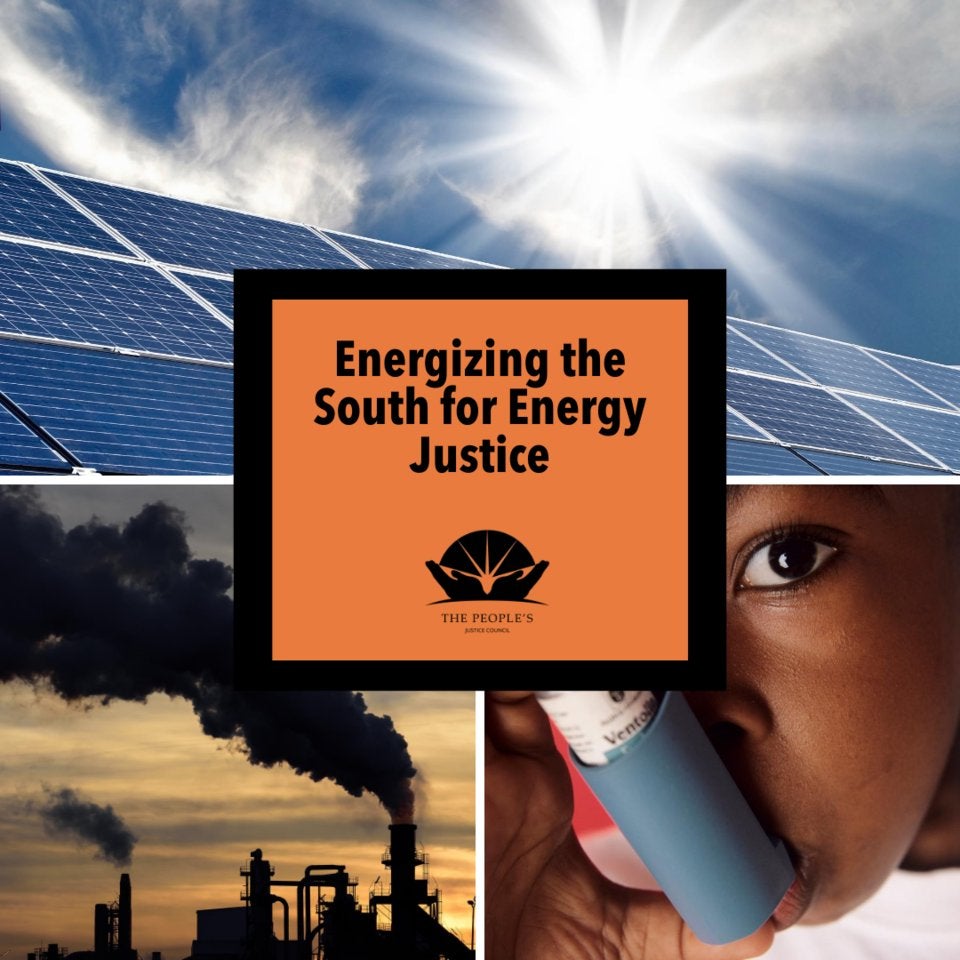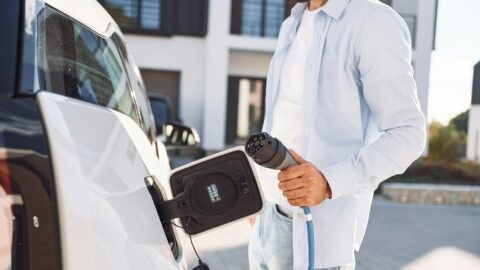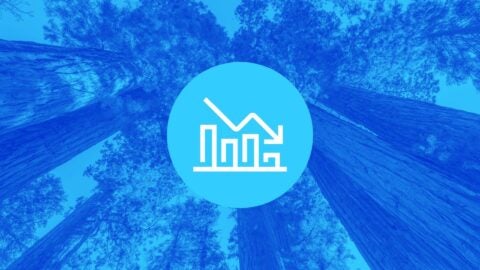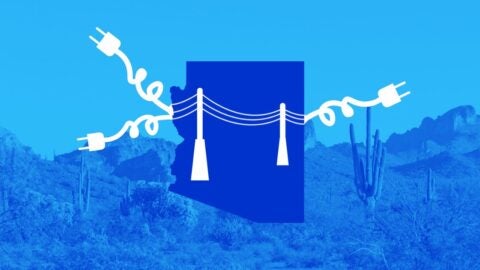Energy justice is racial justice
 Guest blog by Reverend Michael Malcom
Guest blog by Reverend Michael Malcom
I was born into a working-class family in Decatur, Georgia. My mother and father were both in the home and worked full time jobs. I can remember times going without water, gas, or lights. I can recall a time when I was out with friends and one of them joked on my nails being dirty.
I was ashamed to say that we were without gas at that time and I could barely boil enough water on a hot plate to wash up. It was not that my parents were not working. It was that the utility bill was more than their family could afford. They were making the hard decision of ensuring we had a meal or if we had gas. That month, they decided on the latter.
Many years later, I found myself still unable to escape that same vicious cycle. Like my parents, my wife and I both work, yet we still make brutal decisions between adequately feeding our family and paying utility bills that are typically over $500 per month.
Our story is all too common: Energy insecurity is among the most persistent injustices impacting Black and brown people.
According to a recent report from the American Council for an Energy-Efficient Economy (ACEEE), 25% of Americans pay more than 6% of their income on energy bills even before COVID-19 hit. Of those people, 13% pay more than 10% of their income on their energy bills. Nationally, 67% of low-income households face a high energy burden. And of those households, 60% have severe energy burdens.
This injustice is also not spread evenly across the country. The ACEEE report found that the energy burden in four southern States: Alabama, Kentucky, Mississippi and Tennessee are the highest in the nation, 38% above any other region, with Alabama being the worst in the country.
Of course, COVID-19 has made this problem worse, especially in these states. For example, before a shutoff moratorium, a representative at Memphis Light, Gas and Water in Tennessee said nearly 400 more were customers scheduled to be disconnected every 15 minutes.
This vicious cycle of poverty might best be described as what Dr. Sacoby Wilson, of the University of Maryland School of Public Health, describes as environmental slavery – when the environment that you are in keeps you locked in poverty and suffering. This is exactly what utilities have done to far too many families in America, especially in the South.
But there is hope things can be better if our leaders act. Funding weatherization, for example, can reduce low-income household energy burdens by about 25% by making houses more energy efficient.
Not only do energy efficiency investments help bring down the cost of utilities, they also help avoid the worst impacts of climate change and, with strategic investments, bring cleaner air and good jobs to our communities.
That’s why we held the Energizing the South for Energy Justice Virtual Summit earlier this fall, where we had over 100 faith, community, and organizational leaders come together for two days of inspiration and information. We came together to do justice.
To every faith leader and person of conscience who knows that poverty is not the intended purpose of our existence, we need you to join us in energizing the South for energy justice. Doing justice is fighting for equal access to affordable investments in energy efficiency.
Doing justice is starting community weatherization and retrofitting programs as a ministry. Doing justice is advocating for federal and state investment of energy efficiency for Black, Brown, Indigenous and Communities of color. Loving mercy is ensuring that seniors are not choosing between their energy bill and their medicine, and providing every senior in your community with an energy efficiency inspection on their homes.
Loving mercy is ensuring that that mother does not spend 13% of her income to keep her kids warm. Doing justice and loving mercy means holding our leaders, including public service/ and public utility commissions, responsible to the public and planet over company profits.
As Rev. Dr Gerald Durley reminded us at the Summit, we are “not to bend, back up, or bow.” We instead invited our attendees to help us build out a movement that equips and provides access for communities of faith to energize the south for energy justice. We invited them, and I invite you, to do justice.
Reverend Michael Malcom is the founder of the People’s Justice Council, a group of public theologians from various faith traditions who operate at the intersectionality of justice. He is also the Executive Director of Alabama Interfaith Power and Light and a licensed and ordained United Church of Christ Minister.













One Comment
Good morning, Rev. Malcom. Thank you very much for sharing your story.
Gale Jones Carson